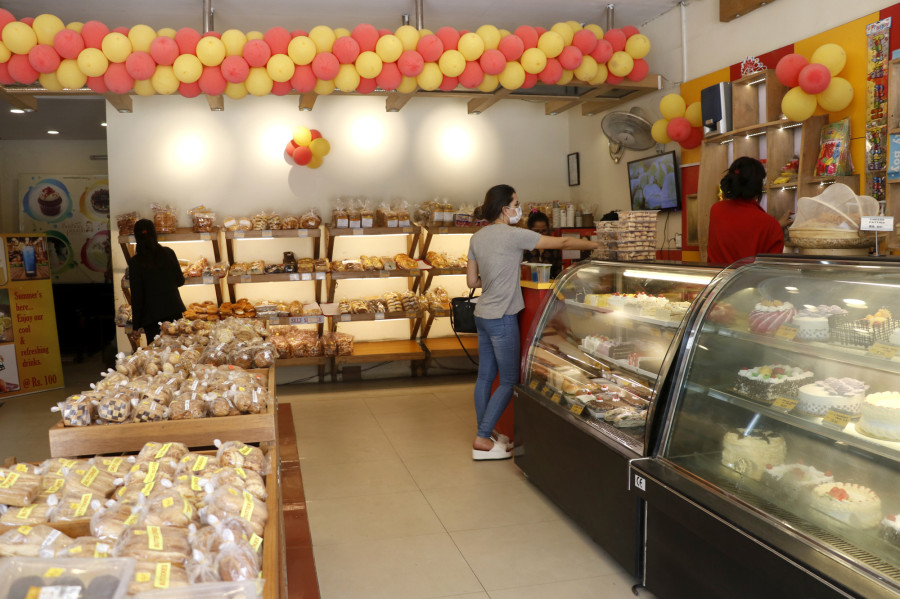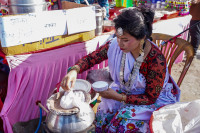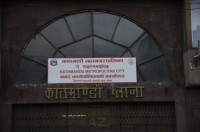Food
Krishna Pauroti once meant white bread. Here’s the story behind this Kathmandu institution.
In the beginning, Krishna only made 10-12 loaves of bread a day with the help of two others. Each loaf cost 50 paisa, but white bread was new to the city and it wasn’t very popular. People preferred traditional breads like roti, swari and puri, not this foreign-style bread.
Rose Singh
Krishna Bahadur Rajkarnikar was in a quandary. It was 1944, the last few years of the Rana oligarchy, and Krishna had developed differences with Indu Shumsher, the grandson of former prime minister Bir Shumsher. With few options left to him, Krishna left for Kolkata.
While there, the story goes, Krishna visited the famous Kali Temple in Kolkata’s Kalighat and rescued an 11-year-old girl who was trapped between the huge crowd of worshippers present there. The father of the little girl, eager to thank Krishna, offered him shelter and training for a week. The man was a baker at a legendary tearoom called Firpo’s. And the rest is history.
In 1947, Krishna came back to Kathmandu, fully adept in the art of making bread. A year later, he began formally making and selling bread, giving birth to Krishna Pauroti Bhandar, a name that’s become synonymous with white bread, or pauroti, in Kathmandu.
In the beginning, Krishna only made 10-12 loaves of bread a day with the help of two others. Each loaf cost 50 paisa, but white bread was new to the city and it wasn’t very popular. People preferred traditional breads like roti, swari and puri, not this foreign-style bread.
Krishna also had another problem. Due to a lack of knowledge and the unavailability of yeast, Rajkarnikar made use of traditional hops, whose fermentation released gases that allowed a dense mass of dough to rise and become a loaf of bread. But this process lent the bread a sour taste and a rumour began to spread in the city that alcohol was involved in the making of the bread.
But the enterprising Krishna persevered. He put up a small signboard in front of his Kamalpokhari shop that read ‘Chokho, taza, sudha pauroti’ —‘Pure, fresh and uncontaminated bread’.
“It was a challenging task to make people believe in something that they weren’t used to seeing or eating,” says Ghanshyam Rajkarnikar, Krishna’s son and current chairperson and managing director of Krishna Pauroti Bhandar.
The rumours, however, did not stop there. The name ‘pauroti’ was connected with the Indian word for ‘foot’ and a rumour spread that the dough was kneaded with the feet. To counteract this rumour, Krishna began to knead dough with his hands in front of his shop, allowing people to see for themselves the process of making bread.

Ghanshyam Rajkarnikar, chairperson and managing director of Krishna Pauroti, is the youngest son of founder Krishna Bahadur Rajkarnikar. Post Photo: Aashruti Tripathy
Dejected after having twice faced setbacks, Krishna wanted to quit making bread, says Ghanshyam. But a famous personality intervened to ensure Krishna Pauroti would go on to become a household name. BP Koirala, who lived nearby, started visiting Krishna’s shop for tea and bread, and managed to persuade him to continue with his baking.
“BP Koirala was impressed with my father’s skills and didn’t want such a new business to stop altogether, especially when democracy was on its way and foreign relations with India would only mean growth for his business,” says Ghanshyam.
Krishna took Koirala’s words to heart and decided to purchase a foreign dough-kneading machine that cost Rs 20,000. But three months before the machine was shipped to Nepal, Krishna passed away, leaving his legacy to his four sons .
Having watched their father make bread over the years and witnessing its growing popularity, the four brothers decided to continue with their father’s passion. And not much later, Krishna Pauroti Bhandar began to produce and distribute roughly 20,000 loaves of breads a day, using cycles for delivery. Demand for the new bread in town was skyrocketing.
In order to meet rising demands, the Rajkarnikar brothers decided to import ovens and other machines. Around the same time, then King Mahendra too grew fond of their bread and soon enough, locals associated the bread with something preferred by the king himself. It was the year 1965 and Krishna Pauroti had become the Valley’s most popular bakery.
The Rajkarnikar brothers also finally began to use yeast in their bread. On a trip to Kolkata, like their father before them, the brothers saw inspiration. Bread sellers used tricycles to deliver loaves but individual companies had their own jingles that they used to attract customers. So on their return to Nepal, the brothers too came up with their own jingle, which was advertised on Radio Nepal. “Bhaigo sathi, kheldina aba. Bhok pani lagyo, ma ta janchu, khaja khanchu, pauroti, Krishna Pauroti,” went the jingle, which was also sung by delivery people on tricycles. Sales of their pauroti began to rise, going up to 35,000 loaves a day by the year 1976, says Ghanshyam.
 Workers prepare dough for baking at the bread factory. Post Photo: Aashruti Tripathy
Workers prepare dough for baking at the bread factory. Post Photo: Aashruti TripathyBut things wouldn’t always go so smoothly for the Rajkarnikars. In 1981, the eldest brother passed away and later, so did another brother. In-fighting began between the two remaining brothers and Ghanshyam decided to cut his losses and separate from the company. He sold the company’s machines and gave his remaining brother his share. Ghanshyam relocated to a ropani of land in Kamalpokhari and started anew.
Today, Krishna Pauroti is not what it was in its heyday but Ghanshyam and his family keep it running. Ghanshyam’s daughters Pragya, Puja and Shristi, and his wife Shanta now run Krishna Pauroti. To compete with the plethora of bakeries today in Kathmandu, they sell cakes, pastries, doughnuts, juices and coffees. Although the sale of bread isn’t like before, production hasn’t stopped. Even now, they produce around 300 loaves of bread each day, along with other products. Profits remain decent.
For Ghanshyam, his father’s legacy and the impact Krishna Pauroti has had on the eating habits of Kathmandu’s populace is enough. “It wouldn’t be wrong to say that we were the ones who introduced the culture of having bread with tea,” he says proudly.
And although Krishna Pauroti is no longer the only bakery in town, it remains an institution with a long and storied history.
“I do not believe in being rich,” says Ghanshyam. “I’d rather be satisfied.”




 9.6°C Kathmandu
9.6°C Kathmandu










